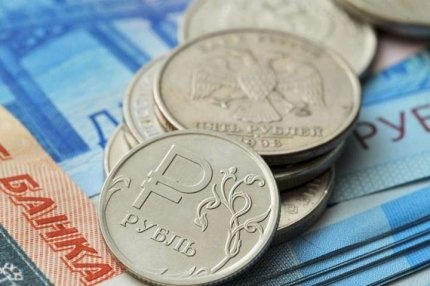Fruit suppliers from several friendly aggressor countries are terminating supply contracts against the backdrop of a large-scale collapse of the ruble.
Points of attention
- The collapse of the Russian ruble is attributed to factors such as low oil prices, new sanctions, and increased government spending on war, leading to a surge in inflation and economic instability.
- Iran, Turkey, and Egypt are terminating supply contracts for fruits with Russia due to the currency crisis, prompting discussions on revising contracts to account for currency risks.
- Russia is considering canceling customs duties on imported fruits and vegetables to combat inflation, as prices for goods like potatoes, cabbage, and tomatoes have significantly increased.
- The Russian central bank has implemented strict measures, including suspending currency purchases and raising key interest rates to 21%, to address inflation and stabilize the economy.
- Criticism towards the central bank's monetary policy is mounting among Russian industrialists, who believe it is negatively impacting the country's economy amidst the ruble's collapse.
What is known about Russia's partners breaking contracts for the supply of fruit to the aggressor country
It is noted that we are talking about Iran, Turkey and Egypt. Companies in these countries require revision of supply contracts to take currency risks into account.
In winter, Russia mostly imports vegetables and fruits from abroad. Exporters have already started delaying the delivery of goods to Russia. They expect prices to rise.
In Russia, since the beginning of the year, this category of goods has risen significantly in price. According to Rosstat, during this period the price of potatoes rose by 78.4%, cabbage by 30.7%, and beets by 27%. Tomatoes increased in price by 22.5% per annum, while cucumbers and onions rose in price by 40.8% and 17%, respectively.

In Russia, the scenario of canceling the customs duty on imported vegetables and fruits is being considered in order to curb the sharp rise in inflation in the country. It is reported that benefits may affect the import of potatoes, onions, carrots, cabbage and apples.
What is known about the large-scale collapse of the Russian ruble
According to Politico, on Wednesday, November 27, the ruble fell to the lowest values in the last 2 years.
A combination of low oil prices, new sanctions against Russian companies and rising government spending on war are putting increasing pressure on the country's economy.
Against the background of the collapse of the ruble, the central bank of the aggressor country has already announced the suspension of currency purchases until the end of this year.
The measure will help curb rising inflation, which has forced the central bank to raise its key interest rate to 21%.
According to official data, inflation is 8.5%, but the real rate of inflation is likely to be much higher.
The article emphasizes that the ruble was under constant pressure last summer, as oil prices fell due to weak demand from China and EU countries.
This week alone, Brent crude oil prices fell by almost 4% amid an easing of the ceasefire between Israel and Hezbollah.
That pressure intensified after the US imposed new sanctions on Gazprombank, which until then had been allowed to process payments for the remainder of Russian gas exports to Europe.
The new package of sanctions also affected 50 Russian banks with international ties, more than 40 Russian securities registrars and 15 Russian officials.
The central bank's tight monetary policy is increasingly criticized by the country's leading industrialists, such as metallurgical baron Oleg Deripaska and Serhiy Chemezov.
More on the topic
- Category
- Economics
- Publication date
- Додати до обраного


